
Find Help
More Items From Ergsy search
-

Should I avoid lying on my back during exercise?
Relevance: 100%
-

Back stretches | NHS
Relevance: 49%
-

Are there any exercises to avoid during pregnancy?
Relevance: 45%
-

What exercises can I do during pregnancy?
Relevance: 43%
-

Mechanical Lower Back Pain
Relevance: 41%
-

Exercises for sciatica: piriformis syndrome | NHS
Relevance: 41%
-

How to treat back pain | NHS
Relevance: 40%
-

Can I do abdominal exercises during pregnancy?
Relevance: 40%
-

MSK Lower Back Pain information video
Relevance: 39%
-

Pilates for back pain: Standing on one leg | NHS
Relevance: 39%
-

How do chiropractors treat back pain?
Relevance: 39%
-
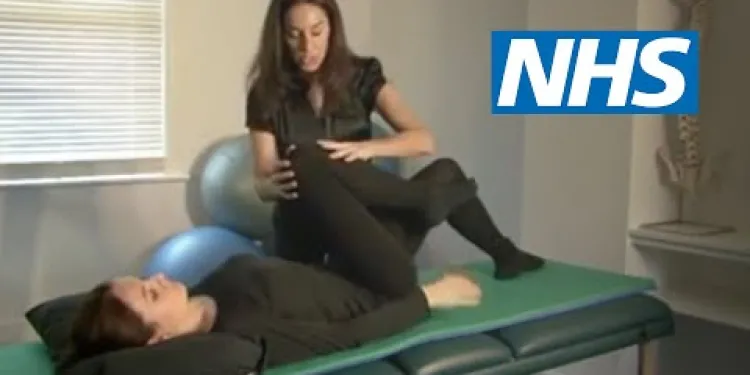
Exercises for sciatica: spinal stenosis | NHS
Relevance: 39%
-

Useful information for patients with lower back pain
Relevance: 38%
-

Useful information for patients with lower back pain
Relevance: 38%
-

Exercises for sciatica: herniated or slipped disc | NHS
Relevance: 38%
-
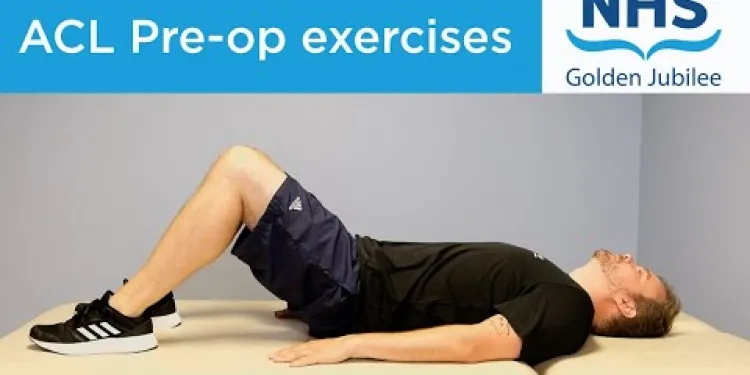
ACL pre-operation exercises
Relevance: 38%
-

Pilates for back pain: Seated waist twist | NHS
Relevance: 38%
-

Exercises for sciatica: herniated or slipped disc | NHS
Relevance: 37%
-

How often should I exercise during pregnancy?
Relevance: 37%
-

Pilates for back pain: Seated waist twist | NHS
Relevance: 37%
-

Can I take exercise classes during pregnancy?
Relevance: 37%
-

ACL exercises post-operation
Relevance: 36%
-
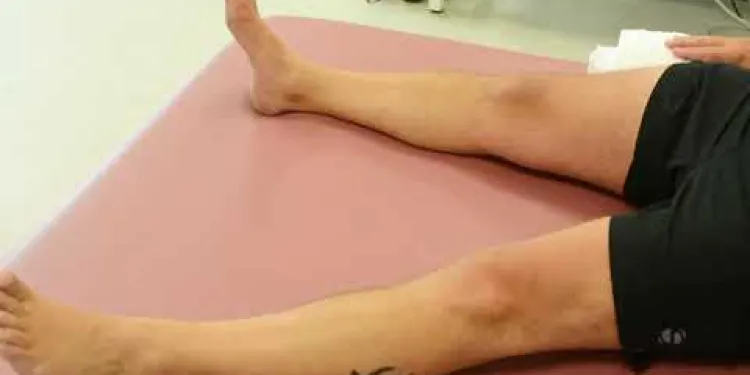
Joint School - Hip Exercises
Relevance: 36%
-

Shoulder Exercises 1
Relevance: 34%
-

Neck Care Exercises
Relevance: 34%
-
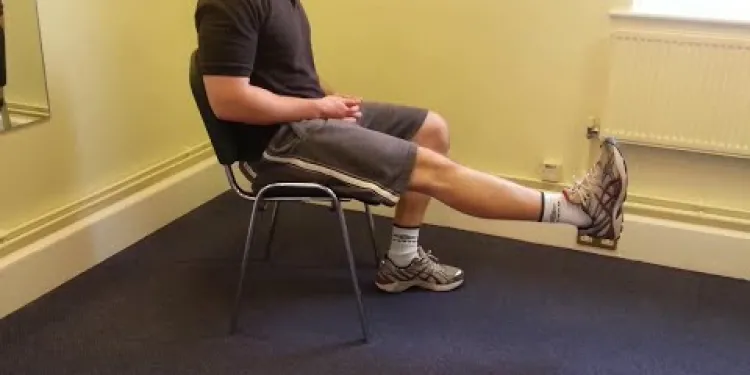
Knee Care Exercises
Relevance: 34%
-
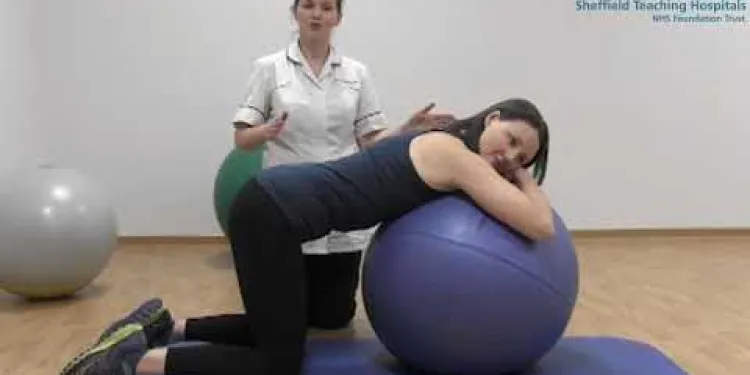
Mat and gym ball exercises with pregnancy related Pelvic Girdle Pain
Relevance: 33%
-

Neck Exercises
Relevance: 33%
-

Clearing Your Chest with Breathing Exercises
Relevance: 33%
-
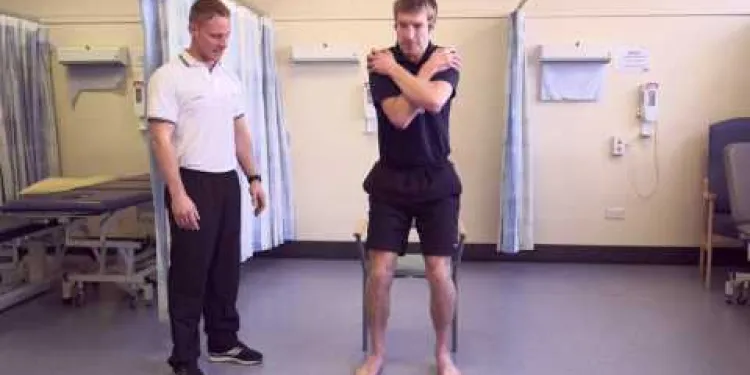
Exercises to help your lateral hip pain
Relevance: 33%
-

Evidence-Based Interventions: injections for non-specific low back pain without sciatica
Relevance: 32%
-

Can exercises help with labor preparation?
Relevance: 32%
-

Elbow Eccentric Strengthening Exercise
Relevance: 31%
-

Can I do high-impact exercises while pregnant?
Relevance: 31%
-

How does exercise benefit pregnancy?
Relevance: 31%
-

Pelvic Floor Exercises - Using Your Pelvic Floor to Calm Down Your Bladder
Relevance: 31%
-

Plantar Fascia Loading Exercise (High Load Exercise)
Relevance: 31%
-

Exercises for sciatica: degenerative disc disease | NHS
Relevance: 30%
-

Facial exercise programme
Relevance: 30%
-

Are there any fees to claim money back?
Relevance: 30%
Introduction
When it comes to exercise, form and posture are critical to ensuring effectiveness and avoiding injury. A common question that often arises, particularly for certain groups of people, is whether lying on your back during exercise is safe or advisable. This query is especially pertinent to pregnant women and people with certain medical conditions. Understanding when it’s safe and when it might be best to avoid this position can help optimise your workout routine.
General Considerations
For most individuals, lying on your back during exercise poses no significant risk and can be an integral part of fitness routines, particularly when performing exercises like bench presses or abdominal workouts. This position can help in maintaining form and targeting specific muscle groups effectively. However, while lying on your back isn't inherently dangerous, there are some considerations to bear in mind depending on your health status and specific scenarios.
Pregnancy Concerns
For pregnant women, especially after the first trimester, it is often advised to avoid exercises that require lying flat on the back. This recommendation stems from the risk of a condition known as supine hypotensive syndrome, where the weight of the uterus can compress the vena cava—a major vein that returns blood to the heart. This compression can lead to reduced blood flow and might cause dizziness, breathlessness, and low blood pressure, posing risks to both the mother and the baby. Consult a healthcare professional for personalised advice on exercise during pregnancy.
Medical Conditions
Individuals with certain medical conditions, such as severe back pain, heart conditions, or respiratory issues, may also need to exercise caution when lying on their backs. For those with back pain, lying flat might exacerbate the condition, whereas people with respiratory concerns might find it uncomfortable due to restricted breathing. Again, it's advisable to seek medical advice if you have concerns about lying on your back during exercise due to health conditions.
Alternatives and Modifications
For those advised to avoid lying on their back, there are numerous alternatives and modifications that can be just as effective. Exercises like inclined bench presses or standing or sitting abdominal workouts can provide similar benefits without the risks associated with lying flat. Modifying exercises to fit your health needs ensures that you continue to work towards your fitness goals safely.
Conclusion
Whether or not to avoid lying on your back during exercise largely depends on individual circumstances, such as pregnancy or specific health conditions. While it is generally safe for most people, being aware of your body's needs and consulting with a healthcare professional can help tailor an exercise routine that ensures safety and effectiveness. Always prioritise your health and well-being during physical activities.
Introduction
Exercise is good for you, but it's important to do it safely. How you hold your body (called posture) is very important. Some people wonder if it's safe to lie on their back when they exercise. This is an important question for pregnant women and people with some health problems. Knowing when it's okay to lie on your back can help you exercise better and safer.
General Considerations
Most people can lie on their back during exercise with no problem. This position is used in exercises like bench presses and some belly exercises. Lying on your back can help you do these exercises well. But it's not always safe for everyone. You need to think about your health and any special situations you might have.
Pregnancy Concerns
Pregnant women, especially after the first three months, are often told not to lie flat on their back. This is because the baby can press on a big vein called the vena cava. This can make the mom feel dizzy, short of breath, and can lower blood pressure. This might not be safe for the mom and the baby. It's a good idea to ask a doctor about safe exercises during pregnancy.
Medical Conditions
If you have health problems like bad back pain, heart issues, or breathing problems, you should be careful about lying on your back. Lying flat can make back pain worse or make it hard to breathe. It's smart to talk to a doctor if you have questions about your health and exercise.
Alternatives and Modifications
If you can't lie on your back, there are other ways to exercise. You can do exercises on a slanted bench, or do standing or sitting belly exercises. These can work just as well without the risks. Changing exercises to suit your health means you can keep reaching your fitness goals safely.
Conclusion
Deciding whether to lie on your back during exercise depends on things like pregnancy or health issues. Most people can do it safely, but it's important to know your body and ask a doctor if you’re unsure. Always make sure you're exercising in a way that's safe and good for your health.
Frequently Asked Questions
Is it safe to lie on my back during exercise?
For most people, lying on your back during exercise is safe. However, certain circumstances, such as pregnancy or specific medical conditions, may require modifications.
Why would lying on my back be a concern during exercise?
Lying on your back can be risky during exercise if it leads to breathing difficulties, affects circulation, or is contraindicated due to specific health conditions like pregnancy.
Should pregnant women avoid lying on their back during exercise?
Yes, after the first trimester, it is often recommended that pregnant women avoid lying flat on their backs to prevent compression of the vena cava.
What is the vena cava and why is it important?
The vena cava is a large vein that carries deoxygenated blood to the heart. Compression of this vein can affect circulation, especially in pregnant women.
Can lying on my back during exercise affect my breathing?
Yes, in some cases, lying on your back can impact breathing efficiency, especially during intensive exercises or if you have a respiratory condition.
Are there exercises that are typically performed lying on the back?
Yes, exercises like crunches, leg raises, and some bridges are often performed while lying on the back.
Is lying on my back during exercise bad for my back?
Not necessarily. If done correctly, lying on your back during exercise can help strengthen abdominal and core muscles without harming your back.
Can lying on my back reduce exercise effectiveness?
Lying on your back only reduces exercise effectiveness if it is done incorrectly or if it causes discomfort that limits your range of motion.
Are there alternatives to exercises that require lying on the back?
Yes, many exercises can be modified to stand, sit, or lie on your side. It's important to tailor exercises to your personal comfort and health situation.
What should I do if I feel dizzy lying on my back during exercise?
If you feel dizzy, it's important to stop exercising, sit up slowly, and try to identify the cause. Consult a healthcare professional if dizziness persists.
Does lying on my back support certain fitness goals better?
Lying on your back can help target core muscles effectively, but it should be balanced with other positions to achieve comprehensive fitness goals.
How can I ensure proper form when lying on my back during exercise?
Focus on keeping your spine neutral, engage your core, and perform movements slowly and with control to maintain proper form.
Do certain health conditions necessitate avoiding exercises on the back?
Yes, conditions like pregnancy, cardiovascular issues, or certain back problems might require avoiding or modifying exercises done on the back.
Can lying on the back worsen any medical conditions during exercise?
Yes, lying on the back might exacerbate certain medical conditions such as acid reflux or breathing difficulties.
Are there specific exercises recommended to be performed not on the back?
Standing exercises, such as squats and lunges, or seated exercises like seated rows can be effective alternatives to lying on the back.
What precautions should I take when exercising on my back?
Ensure you have proper support, maintain good posture, and listen to your body. If you experience discomfort or pain, stop and consult a professional.
Can exercise intensity affect whether it's safe to lie on my back?
Yes, higher intensity exercises might have a greater impact on circulation and breathing, potentially making it less safe to lie on the back for extended periods.
Should beginners avoid exercises on their back?
Beginners can perform exercises lying on their back, but they should focus on mastering form and understanding their body's responses.
How does lying on my back during exercise affect blood pressure?
Lying on the back can affect blood return to the heart, potentially influencing blood pressure, especially in individuals with preexisting circulatory issues.
Is it okay to lie on my back during exercise if I have a history of back problems?
Consult a healthcare provider before performing exercises on your back if you have a history of back problems to determine safe modifications.
Can I exercise lying on my back safely?
Most of the time, it is okay to lie on your back when you exercise. But sometimes, like when a person is pregnant or has a special health problem, they might need to do things differently.
Why is lying on my back during exercise a problem?
Lying on your back while exercising can sometimes be unsafe.
It can make it hard to breathe. It can also make you dizzy or feel sick. Always try to be careful when exercising.
If you feel dizzy or sick, stop and rest for a bit.
It's always a good idea to ask a coach or grown-up if you are not sure.
Lying on your back when you exercise can sometimes be bad. It might make it hard to breathe, affect your blood flow, or be unsafe if you're pregnant or have other health problems.
Can pregnant women lie on their back when exercising?
If you are pregnant, try not to lie on your back for exercises. It might not be safe. Lying on your side is better.
If you need help or have questions, ask a doctor or health expert. They can give good advice just for you.
When a woman is pregnant and past the first 3 months, it is often advised not to lie flat on her back. This is to avoid putting pressure on a big vein called the vena cava.
What is the vena cava and why is it important?
The vena cava is a big tube in our body. It carries blood to the heart.
This blood is coming back from our body to get more air. Our heart needs this blood to keep working well.
If you find reading hard, you can ask someone to help you. You can also use pictures or videos to help understand better.
The vena cava is a big vein. It takes blood with no oxygen back to the heart. If this vein gets squeezed, it can make blood flow harder. This is important for pregnant women.
Can lying on my back when I exercise change how I breathe?
Yes, sometimes lying on your back can make it harder to breathe, especially if you are exercising a lot or if you have problems with your lungs.
If you find it hard to breathe, try sitting up or lying on your side. You can also ask for help from a doctor or a breathing teacher.
Can you do exercises while lying on your back?
Yes, there are exercises you can do while lying on your back. These include crunches, leg raises, and some bridges.
Is it bad for my back if I lie on it during exercise?
Lying on your back to exercise is usually safe. But if your back hurts, ask a doctor first.
Here are some tips:
- Use a soft mat or towel to lie on.
- Start slow and gentle.
- If something hurts, stop and rest.
If you're unsure, it might help to watch videos or ask someone to show you.
It's okay to lie on your back when you exercise. This can make your tummy and middle strong without hurting your back. Just make sure you do it the right way.
Does lying on my back make my exercise not work as well?
Sometimes, lying down when you exercise can make it less effective. Try to sit or stand instead. If you need help with exercise, ask a friend or use a video.
When you lie on your back, it only makes exercise less helpful if you do it wrong or if it hurts and stops you from moving well.
Can I do different exercises without lying on my back?
Yes, you can do exercises while standing, sitting, or using a chair. You can try:
- Standing up exercises like marching or stretching
- Sitting exercises like arm circles or leg lifts
- Chair exercises with help from a chair
Tools that can help:
- Watch videos online to see how the exercise looks.
- Ask someone to show you how to do the exercise.
Yes, you can change many exercises to do them standing up, sitting down, or lying on your side. It's important to make exercises fit how you feel and what you need for your health.
Here are some tips to help:
- Listen to your body. If something hurts, stop and try a different way.
- Ask someone to help you, like a friend or a coach.
- Use videos or apps that show easy exercises you can follow.
What to do if you feel dizzy when lying on your back during exercise?
If you feel dizzy when lying on your back during exercise, try these steps:
- Stop exercising and sit up slowly.
- Take deep breaths and relax.
- Drink some water.
- If you still feel dizzy, tell someone you trust.
- If it happens often, talk to a doctor.
Here are some things that can help:
- Exercise with a friend.
- Use a mat or soft surface.
- Listen to your body and take breaks.
If you feel dizzy, stop moving right away. Sit up slowly. Try to figure out why you feel dizzy. Talk to a doctor if you still feel dizzy after some time.
Can lying on my back help me reach my fitness goals?
Lying on your back helps make your tummy muscles strong. But it's good to try other positions too. This way, your body can become fit in different ways. Using timers can help you remember to switch positions.
How can I make sure I am doing exercises right when lying on my back?
Here are some tips to help you:
- Keep your back straight on the floor.
- Bend your knees and keep your feet flat.
- Relax your neck and shoulders.
- Breathe in and out slowly.
If you need help, you can:
- Ask a friend or family member to watch you.
- Use a mirror to check your body.
- Watch a video that shows you how to do it.
Keep your back straight and your tummy tight. Move slowly and carefully to do it the right way. You can use tools like stretching bands or ask a friend to help check your posture.
Should some people not do exercises on their back because of health problems?
If you have health problems, ask your doctor if it's okay to do back exercises. A doctor can tell you what's safe.
If you're having a hard time reading, get someone to help you or use a text-to-speech tool. This can make understanding easier.
Yes, some conditions mean you need to be careful with exercises you do on your back. These include being pregnant, having heart problems, or having some back problems.
Can lying on your back make health problems worse when you exercise?
When you lie on your back and exercise, it might make some health problems worse. Here are some things to think about:
- Talk to a doctor if you feel any pain or discomfort.
- If you have breathing problems, ask a doctor how to exercise safely.
- Try using pillows or a soft mat to feel more comfortable.
- Go slow and stop if you don’t feel well.
Remember, it's always good to ask a grown-up or a doctor for advice if you are not sure about something.
Lying on your back can make some health problems worse. It can cause problems like acid coming up from your stomach or trouble breathing.
Are there some exercises you should not do while lying on your back?
Some exercises can be hard or unsafe to do while lying on your back.
Here are some ideas:
- Try exercises standing up.
- Do exercises while sitting in a chair.
- Use a wall to help you balance when moving.
Always listen to your body. If something hurts, stop and try again later.
If you're unsure, ask an adult or a coach for help.
There are different exercises you can try. You can do standing exercises like squats and lunges. You can also do exercises while sitting down, like seated rows. These are good choices if you don't want to lie on your back.
What should I do to stay safe when I exercise on my back?
Here are some tips to help you:
- Go Slow: Move slowly and don't rush.
- Support Your Back: Use a soft mat or towel under your back.
- Breathe: Remember to take deep breaths.
- Listen to Your Body: If it hurts, stop and rest.
- Ask for Help: You can have a friend or trainer watch you.
You can also use videos or apps that show you how to do exercises safely.
Get the right help. Sit or stand up straight. Pay attention to how your body feels. If you hurt or feel bad, stop what you are doing and talk to someone who knows how to help.
Is it safe to lie on my back when I exercise?
Yes, doing harder exercises can make your blood move faster and your breathing harder. This might make it unsafe to lie on your back for a long time.
Helpful Tips:
- Take breaks to rest and catch your breath.
- Talk to an adult or coach if you feel dizzy.
- Use a timer to make sure you don't lie down too long.
Is it good for beginners to do exercises lying on their back?
If you are just starting, you can do exercises while lying on your back. It is important to learn how to do them right and listen to how your body feels.
Does laying on my back while exercising change my blood pressure?
When you lay on your back to exercise, it can change how blood moves in your body. This can make your heart and blood pressure act differently.
Talk to a doctor if you have questions about this. They can help you understand what is best for you.
Tools like picture charts or videos can help you learn more.
Lying on your back can change how blood goes back to your heart. This can change your blood pressure. It can be important for people who already have problems with blood flow.
Tools like picture charts or simple diagrams can help explain this. Talking with a doctor or using a blood pressure monitor helps check for any problems.
Can I lie on my back when I exercise if my back has hurt before?
Talk to a doctor before doing exercises on your back if you have had back problems. They can help you do the exercises safely.
Useful Links
Have you found an error, or do you have a link or some information you would like to share? Please let us know using the form below.
-->
This website offers general information and is not a substitute for professional advice.
Always seek guidance from qualified professionals.
If you have any medical concerns or need urgent help, contact a healthcare professional or emergency services immediately.
Some of this content was generated with AI assistance. We’ve done our best to keep it accurate, helpful, and human-friendly.
- Ergsy carfully checks the information in the videos we provide here.
- Videos shown by Youtube after a video has completed, have NOT been reviewed by ERGSY.
- To view, click the arrow in centre of video.
- Most of the videos you find here will have subtitles and/or closed captions available.
- You may need to turn these on, and choose your preferred language.
- Go to the video you'd like to watch.
- If closed captions (CC) are available, settings will be visible on the bottom right of the video player.
- To turn on Captions, click settings .
- To turn off Captions, click settings again.
More Items From Ergsy search
-

Should I avoid lying on my back during exercise?
Relevance: 100%
-

Back stretches | NHS
Relevance: 49%
-

Are there any exercises to avoid during pregnancy?
Relevance: 45%
-

What exercises can I do during pregnancy?
Relevance: 43%
-

Mechanical Lower Back Pain
Relevance: 41%
-

Exercises for sciatica: piriformis syndrome | NHS
Relevance: 41%
-

How to treat back pain | NHS
Relevance: 40%
-

Can I do abdominal exercises during pregnancy?
Relevance: 40%
-

MSK Lower Back Pain information video
Relevance: 39%
-

Pilates for back pain: Standing on one leg | NHS
Relevance: 39%
-

How do chiropractors treat back pain?
Relevance: 39%
-

Exercises for sciatica: spinal stenosis | NHS
Relevance: 39%
-

Useful information for patients with lower back pain
Relevance: 38%
-

Useful information for patients with lower back pain
Relevance: 38%
-

Exercises for sciatica: herniated or slipped disc | NHS
Relevance: 38%
-

ACL pre-operation exercises
Relevance: 38%
-

Pilates for back pain: Seated waist twist | NHS
Relevance: 38%
-

Exercises for sciatica: herniated or slipped disc | NHS
Relevance: 37%
-

How often should I exercise during pregnancy?
Relevance: 37%
-

Pilates for back pain: Seated waist twist | NHS
Relevance: 37%
-

Can I take exercise classes during pregnancy?
Relevance: 37%
-

ACL exercises post-operation
Relevance: 36%
-

Joint School - Hip Exercises
Relevance: 36%
-

Shoulder Exercises 1
Relevance: 34%
-

Neck Care Exercises
Relevance: 34%
-

Knee Care Exercises
Relevance: 34%
-

Mat and gym ball exercises with pregnancy related Pelvic Girdle Pain
Relevance: 33%
-

Neck Exercises
Relevance: 33%
-

Clearing Your Chest with Breathing Exercises
Relevance: 33%
-

Exercises to help your lateral hip pain
Relevance: 33%
-

Evidence-Based Interventions: injections for non-specific low back pain without sciatica
Relevance: 32%
-

Can exercises help with labor preparation?
Relevance: 32%
-

Elbow Eccentric Strengthening Exercise
Relevance: 31%
-

Can I do high-impact exercises while pregnant?
Relevance: 31%
-

How does exercise benefit pregnancy?
Relevance: 31%
-

Pelvic Floor Exercises - Using Your Pelvic Floor to Calm Down Your Bladder
Relevance: 31%
-

Plantar Fascia Loading Exercise (High Load Exercise)
Relevance: 31%
-

Exercises for sciatica: degenerative disc disease | NHS
Relevance: 30%
-

Facial exercise programme
Relevance: 30%
-

Are there any fees to claim money back?
Relevance: 30%


